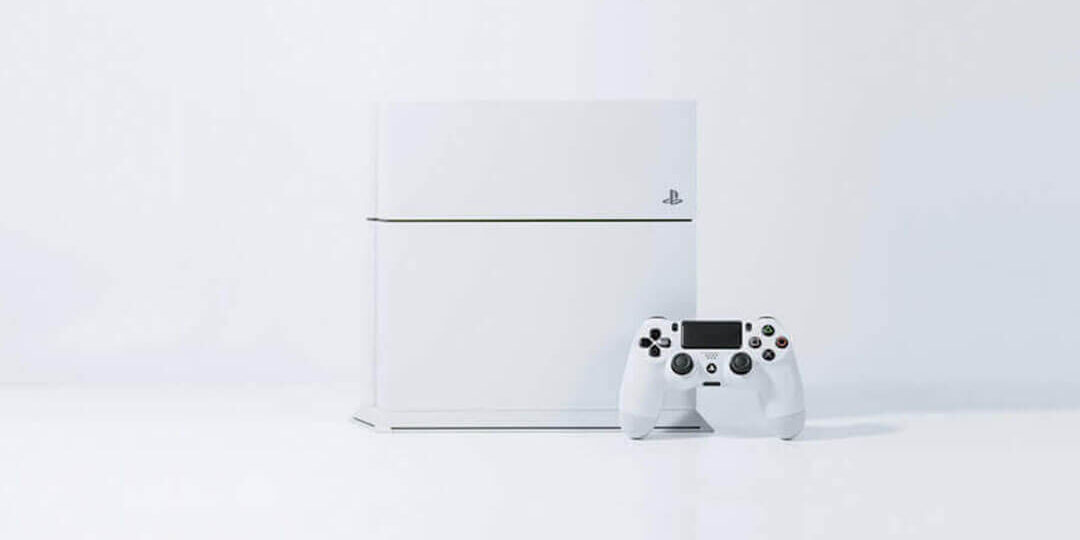Marketing is definitely not a science. They can teach it in school, people can claim to be experts in it, but sometimes even the most successful businesses and brands drop the ball in absolutely stunning ways. A good campaign is a rare thing, and it inspires consumers to go out and consume your products. Most campaigns are perhaps effective but forgettable at the same time.
And then a select few are bungled so badly that they’ll be talked about for years to come and used as examples of what you should never, ever do.
Like these ones. 10. Aqua Teen Hunger Force Bomb Scare It’s a good rule of thumb that if your advertising campaign immediately invokes a police response because people think you placed improvised explosive devices around the city you’ve done something wrong. This was the case in 2007 with a guerrilla marketing campaign for the Aqua Teen Hunger Force movie in Boston. Turner Broadcasting took responsibility for a series of LED light displays that were placed on buildings depicting the Mooninites characters.
For whatever reason, when people saw these with their hastily wired and powered frames, complete with some electrical tape and exposed wiring, they determined it must have been a terror attack in the making. Word is that it took the intervention of a staffer at the Boston mayor’s office before law enforcement officials even realized what was going on. Because everyone who had fallen under the impression that these were explosives was too old to know what Aqua Teen Hunger Force was, only this young staffer was able to point out that this was a cartoon character everyone was getting so worked up about.
The whole debacle was labelled a bomb hoax even though no one was implying there were any bombs anywhere and while it did garner some attention, it was probably not what the producers of the show were hoping for. 9.
Miracle Mattress’s 9/11 Nightmare Every year in September we remember the events of 9/11, and often businesses will do something to commemorate the somber occasion. In 2016, Miracle Mattress in Texas decided that their best method of memorializing the events of September 11th would be to have a twin tower mattress sale, complete with a commercial in which two employees fall backwards into twin towers of mattresses, knocking them over.
It was arguably one of the most tone-deaf advertising campaigns in the history of advertising. If there’s one rule that most companies will go by, it’s not to make comedy out of tragic loss of human life, especially for the sake of making a few dollars off of a mattress. The backlash was fairly severe.
The owner of the company issued a statement apologizing for what happened, claiming that the commercial had been done by one single location without his approval. The woman featured in the commercial made a tearful apology video but the damage was clearly done at that point. 8. The McAfrika Mistake A fresh, tasty pita topped with seasoned beef, cheese, and tomatoes sure does sound tasty, and that’s what McDonald’s thought in the year 2002 when they released it in Norway as the McAfrika.
That proved to be a very bad move.
While Norway no doubt had consumers eager to eat the tasty snack, the fact that a terrible famine gripped Zambia, Zimbabwe, Mozambique, Malawi and many other African nations at that very same moment made it a case of utterly abysmal timing. Despite widespread criticism for being insensitive, McDonald’s did not stop selling the burger and kept it on sale for as long as they’d intended. Their concession was to allow charities to collect for African famine aid at McDonald’s locations at the same time. Proving that McDonald’s was really adamant about digging their heels in, they even re-released the McAfrika six years later to support the Olympics and got the same negative feedback a second time. 7.
Toyota Stalker A good sign that your marketing campaign has gone off the rails is when a court allows a person to proceed with a $10 million lawsuit against your company for cyberstalking.
That’s exactly what happened to Toyota with their guerilla “stalking” campaign. It started when Amber Duick got a random email from a guy named Sebastian Bowler. Amber lived in LA and it seemed that Sebastian was from the UK. He emailed letting her know he was coming to visit.
Amber had no idea who he was and just ignored it as spam. The next day he emailed her again, dropping her home address in the email, saying that he was coming to lay low. He was also bringing his pitbull, who had a problem with vomiting. Sebastian continued sending daily emails to Amber, each one from a location slightly closer to her home.
The emails detailed how he was trying to avoid the police as he roadtripped across America (in a Toyota Matrix, of course) to her home.
Once she even got an email from a motel where Sebastian had apparently stayed, giving her a bill for a room the man had trashed. As it turns out, it was all a “prank” orchestrated by Toyota. Toyota claimed Duick had agreed to be a part of an “experience” while she claimed she had no idea this was going to happen to her and suffered serious emotional distress.
How did it end? Settled out of court.
6. Spotify’s Murder Doll You can make a solid argument that this Spotify commercial is actually a really good commercial, but it still got banned in the UK. The commercial features the Camila Cabello song “Havana” and a creepy little doll that apparently murders people whenever the song comes on. It’s filmed in much the same style as a horror movie, with quick flashes of the scary doll and people screaming as it stalks them through a house. The problem with the ad was that it was deemed to be too scary, which you could argue is a compliment, but it still makes it a fail at the same time.
The Advertising Standards Authority ruled that while they understood it was a parody of the horror genre, it was still likely to cause undue stress to children who saw it, and so the ad had to be removed. 5. Pepsi’s Harrier Jet Humor is a tricky thing, and what one person finds funny another person will find offensive.

What one person thinks is a joke another may take very seriously. Pepsi learned this the hard way back in 1996.
In 1996, Pepsi ran a campaign where customers could collect Pepsi Points and exchange them for swag like t-shirts or hats. The more Pepsi Points you collected, the better swag you could get. And in their commercial they tossed in a joke about how if you collected seven million Pepsi Points they would hook you up with a Harrier jet. John Leonard thought that sounded like a great deal. The fine print on the contest said that you could buy Pepsi Points for just $0.
10 a piece without any purchase required of Pepsi products. That meant a Harrier jet was only going to set you back $700,000. While Pepsi obviously meant this as a joke, assuming no one would ever actually collect seven million Pepsi Points, Leonard figured this was a sound investment because the Harrier jet normally came with a price tag of about $23 million at the time. So the 21-year-old found five investors to front him $700,000 and he sent it off to Pepsi to await his jet.
Obviously this didn’t work out and a lawsuit came of it, which Pepsi ended up winning after a judge decided that no reasonable person could have believed Pepsi was going to hand over a multimillion-dollar machine of war in exchange for buying soft drinks.
Still, they learned their lesson and when they ran the campaign later on they changed it from seven million points to 700 million points. 4. Ikea’s Pee Coupon Everyone likes a coupon, and it’s hard to think of new ways to innovate getting those to customers. Leave it to IKEA to be ahead of the pack. In 2018, the Swedish company rolled out an ad featuring a picture of a crib.
The text read “peeing on this ad could change your life.” So right away they clearly did something a little odd here. The idea behind this was that if you were pregnant, you could get 50% off the crib.
How could you prove you were pregnant? The ad doubles as a home pregnancy test, so that if a woman did in fact urinate on it and it proved she was pregnant, then the coupon for the crib would appear.
On the one hand, it is very innovative, and on the other hand you have to urinate on it and then bring it to a store and give it to someone. While the ad campaign actually was praised for being so creative, the fact remains that it was literally asking you to bring a urine-soaked advertisement from your home to a store to give to some hapless cashier who would then have to perhaps file it away somewhere. 3. Vitamin Water Gets Offensive Snapple really pioneered the idea of having cute little phrases inside their bottle caps. Unfortunately, not every company is able to replicate that same idea.
Vitamin Water in Canada tried a similar marketing gimmick by printing messages inside of their bottles.
In Canada there are two official languages and that means messages would have to be printed in English and in French. This worked out poorly when a customer popped open one of their bottles and found the message “you retard” inside. The Edmonton woman who opened that particular bottle has a sister with cerebral palsy, which made the insulting message all the worse. She assumed it was some kind of prank, but it turned out to just be a very poorly managed linguistic contest.
Coca-Cola, which owns Vitamin Water, had been printing one English word and one French word inside the bottles caps. In French the word “retard” translates as “late.” But when an English-speaking person is getting that message, paired with the English word “you,” there’s no particularly satisfying explanation for why it happens. 2. LifeLock’s Social Security Bungle Few things are more embarrassing than smugly proclaiming you can do something better than anyone else and immediately learning how wrong you are.
The CEO of LifeLock learned this in the hardest and worst way ever. In 2006, in an effort to show off just how great their personal identity theft security system was, the CEO of LifeLock published his social security number in advertisements.
The idea was to show off how utterly secure their system could make you. It should come as a surprise to absolutely no one that since then his identity has been stolen at least 13 different times. Adding insult to injury, the company was also slapped with a $12 million lawsuit for false advertising since all that identity theft proved their system did not do what they said it could do.
1. Heineken Gets Called Out for Racism In 2018 Chance the Rapper took to Twitter to call out a commercial from Heineken that he felt was being explicitly racist. The commercial, which uses the slogan “sometimes lighter is better,” featured a bartender sliding a bottle of Heineken to a woman who looks like she really needs a drink. So far, so good. The problem was when you combine the “sometimes lighter is better” slogan with the visuals in the commercial.
The bartender was light-skinned, the woman who receives the beer is light-skinned, and everyone else is not.
The beer slides down the bar past no less than three visibly dark-skinned people before it gets to the woman who drinks it. Now maybe it was only Heineken’s intention to be discussing the shade of the beer, but their casting choices made race become a prominent issue.
More powerful than the Number 22
https://hop.clickbank.net/?affiliate=josebaezky&vendor=wgenix&pid=vsl
Discover more from Making Money Is Easy
Subscribe to get the latest posts sent to your email.













![[Explore 20241104] Colors of autumn [Explore 20241104] Colors of autumn](https://i0.wp.com/live.staticflickr.com/65535/54116799494_01eed0bc05_m.jpg?w=640&ssl=1)























